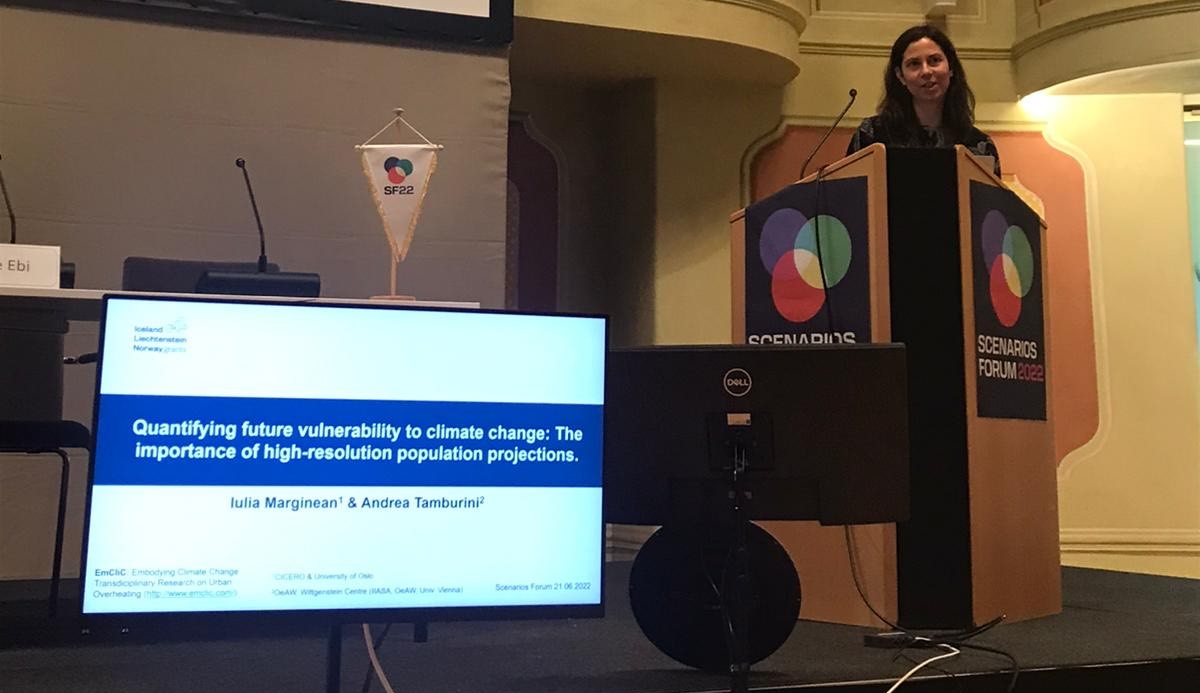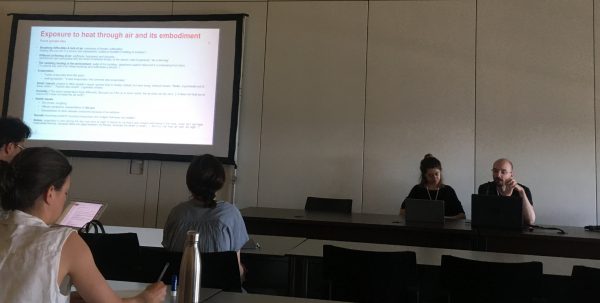EmCliC at conferences this summer

In June, Iulia Marginean presented part of our project at the Scenarios Forum 2022 in Laxenburg, Austria. In collaboration with Andrea Tamburini (OeAW, Wittgenstein Centre), she presented their findings on vulnerability quantification using high resolution populations projections. They argued why demography is a key element in quantifying climate risk for human health, and employed two complementary methods for downscaling population projections to show their advantages and disadvantages.
In July, three of the team members participated in the European Association for the Study of Science and Technology (EASST) conference “Politics of technoscientific futures” in Madrid, Spain. Zofia Boni and Franciszek Chwałczyk gave a talk in a methodological session, and discussed the complexities and simplifications embedded in developing a transdisciplinary project and collaboration. They talked about the challenges of conducting an interdisciplinary project, and whether it is possible to move from truly interdisciplinary research to transdisciplinary research in the lifespan of a 3-year project, and in the broader context of fast pace, neoliberalised, bureaucratised, metrics-driven academia. Zosia Bieńkowska and Franciszek Chwałczyk participated in a panel ‘Doing airborne exposure: Stories, devices, knowledges, and practices’, and presented our findings from research with older adults. They showcased how the age-body-knowledge-attitude-practice assemblages affect how people react to heat, and what role does air play in these processes.

At the end of July, Zofia Boni and Zosia Bieńkowska will participate in the European Association of Social Anthropologists (EASA) conference “Transformation, Hope and the Commons” in Belfast, UK. They will take part in the environmental anthropology network session, and give a paper “Thinking and Living through Atmospheric Heat” discussing multiple materialities and temporalities of heatwaves. The presentation will focus on juxtaposing the perspectives of natural scientists with the experiences of older adults, in order to enrich our understanding of the phenomenon of a heatwave.
